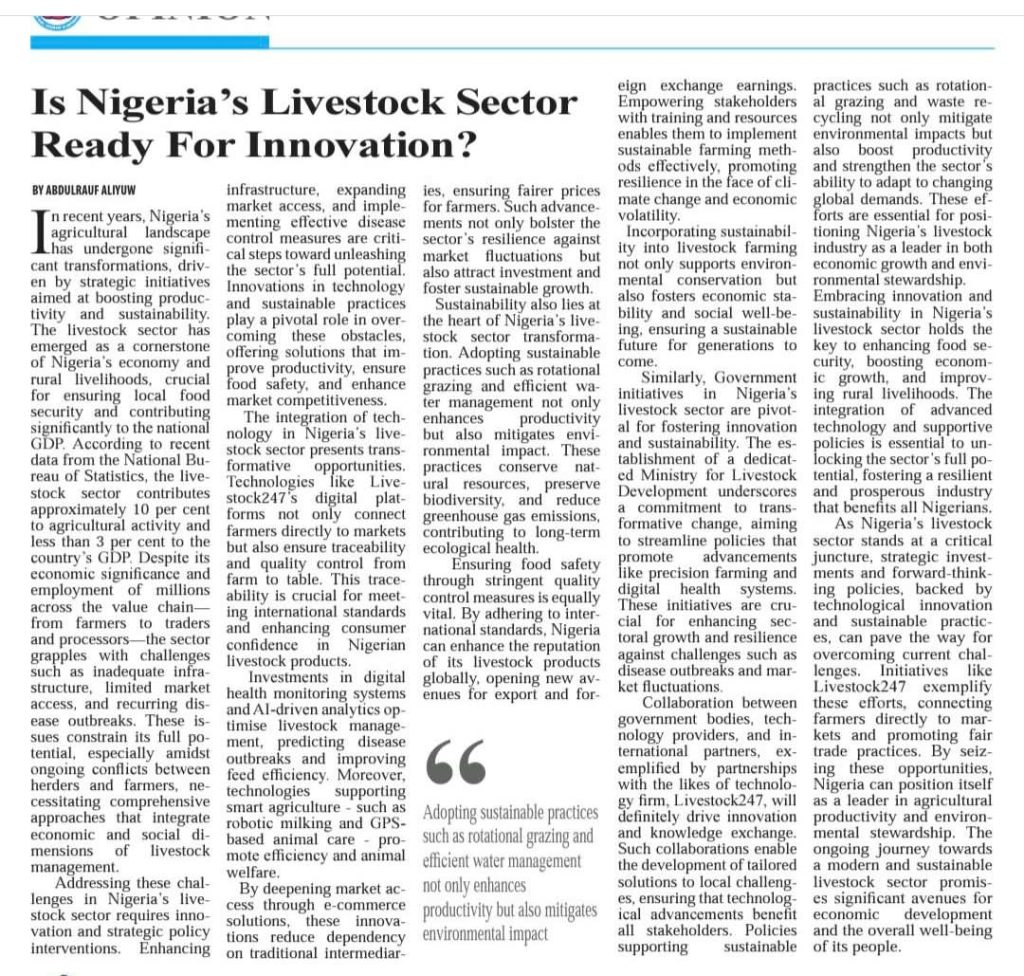
The livestock sector in Nigeria is currently at a critical juncture, presenting both challenges and opportunities. The sector has the potential to significantly contribute to the nation’s GDP, improve food security, and enhance exports such as leather.
Current Landscape:
- Economic Contribution: The livestock sector holds latent capabilities that could contribute substantially to Nigeria’s GDP. However, this potential remains largely untapped.
- Challenges: Key challenges include limited access to modern technology, insufficient infrastructure, and inadequate policies that support innovation and sustainable practices.
Potential for Innovation:
- Technological Advancements: Innovations such as Livestock247 are leading the way by leveraging technology to connect farmers directly to markets and promote fair trade practices.
- Policy Support: Strategic investments and forward-thinking policies are essential to overcome existing challenges. Policies that support technological innovation and sustainable practices are crucial for sector growth.
- Sustainable Practices: Embracing sustainable practices can ensure long-term productivity and environmental stewardship, positioning Nigeria as a leader in agricultural productivity.
Promising Initiatives: Initiatives like Livestock247 exemplify efforts to modernize the sector. These initiatives provide platforms that facilitate direct market access for farmers and promote fair trade, ultimately contributing to the sector’s growth and sustainability.
Conclusion
Nigeria’s livestock sector is at a pivotal point. With the right investments in technology, supportive policies, and sustainable practices, the sector can overcome current challenges and unlock significant economic and social benefits. The ongoing journey towards a modern and sustainable livestock sector holds immense promise for economic development and the well-being of the people.
Source: Livestock247

Leave a comment
You must be logged in to post a comment.